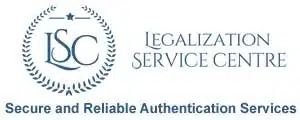Many things set Canada apart from our world neighbors, and one of them is the process of document legalization. If you have ever sought attestation for your documents before, you may have heard the Apostille process mentioned. This is a distinct set of procedures that, in many other countries, serves the same purpose as Canada’s authentication and legalization process. The difference in procedure can add to the confusion surrounding issues of international document certification.
What is Canada’s Document Legalization Process?
In Canada, your public document passes through many trusted hands to make sure it is authentic, and that all relevant information including dates, signatures and seals are valid. This is the process of authentication and legalization, also known as attestation. Attestation will include the steps of authentication by Canadian authorities and legalization by foreign consular officials. In some cases, the signature of a notary is also required.
What is the Apostille Process?
In 1961, a conference was held at the Hague to discuss conventions of international law. It was here that the signing nations agreed upon a standard procedure they would all use for certifying public documents. It is formally called the Convention Abolishing The Requirement of Legalisation For Foreign Public Documents, though it is also known as the Legalization Convention or, more commonly, the Apostille Convention.
Apostille resembles the simple process of a notary, only specifically intended for international purposes. A single official recognized by both nations is all it takes to apply an Apostille and certify the validity of a shared document.
Why Has Canada Not Signed the Apostille Convention?
Initially, Canada was not satisfied with the Apostille Convention. This was mainly due to the lack of a Federal State clause which would have allowed individual provinces to implement the convention’s stipulations locally at their own pace.
Since 1961, a majority of countries have signed the treaty. Chile signed on to the convention in August of 2016. In that country, there was a call from international stakeholders in Chilean businesses to streamline what they considered troublesome and time-consuming regulations.
Currently, there are barriers to implementing the Apostille process in Canada. Setting up the new system requires resources, and existing professionals stand to lose revenue or even their jobs. Additionally, officials in the attestation chain might not fully trust being streamlined out of the process. Canada’s current authentication and legalization process might be a little complicated, but the strength of a certifying institution may lie in its thoroughness.
Will Apostille Ever Be Adopted In Canada?
It’s hard to tell if Canada will eventually become a member of the Apostille Convention. While the treaty continues to slowly draw in more signatures, no recent moves have been made by our government, and it does not appear to be a priority issue at this time.
Over the decades we’ve been helping customers through the document legalization process and we have developed a keen eye for detail. The Legalization Service Centre has always taken care to verify that all documents meet every requirement in both Apostille and non-Apostille countries. We’re certain to offer experienced service assisting our customers, no matter what tomorrow’s circumstance may bring.

